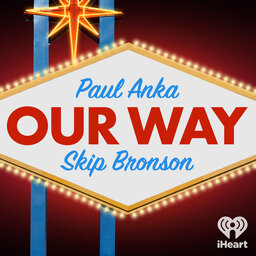Carlos Slim: The Billionaire Who Held the Title of World's Richest Man
Paul and Skip sit down for a master class in world economics courtesy of Carlos Slim, the business titan named by Forbes as the richest man in the world from 2010 to 2013. Slim opens up about the tremendous responsibility that accompanies his wealth, his outlook for the global financial forecast, and how the rise of artificial intelligence presents an opportunity to re-think the traditional work week.
 Our Way with Paul Anka and Skip Bronson
Our Way with Paul Anka and Skip Bronson


